
The Bolivian city of Cochabamba with its over 600,000 inhabitants, is suffocating in traffic. Therefore, a 42 km long light rail system, consisting of three lines of which some use the route of a former railway line, is now under construction. According to the Bolivian newspaper Los Tiempos, about one-third of the construction is completed while in terms of finance, the progress already amounts to 47 % of the US$ 450m (ca. 405 million EUR) project. It seems that the entire route network is built as a slab track in situ concrete. On the short Red line, the works appear to be furthest advanced – catenary masts are already installed. The contract was won in 2016 by the Spanish construction company Joca, among others, against the Swiss consulting company Molinari Rail. Later Molinari joined again and founded the project company Tunari together with Joca.
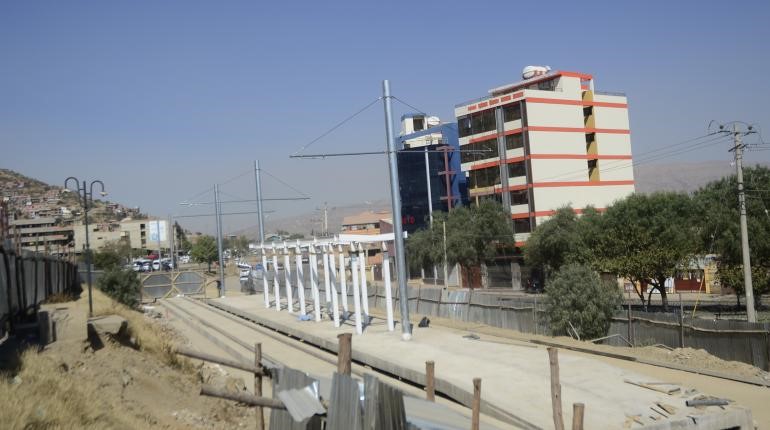
Track construction on the red line with a platform and catenary poles I Photo: lostiempos.com/ Carlos López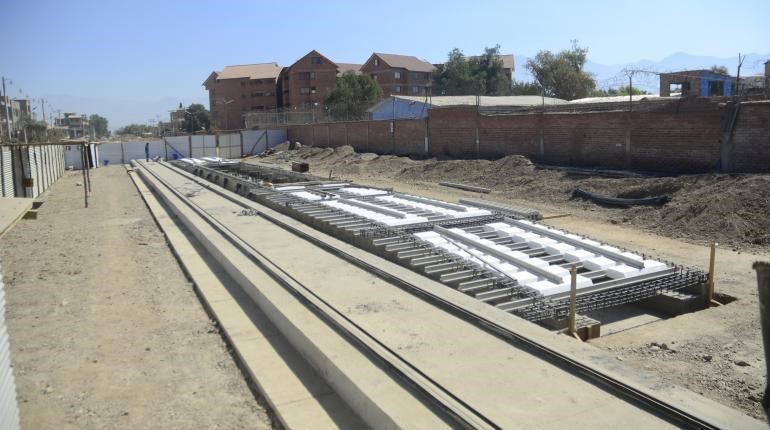
Concrete slab track of the green line under construction in Cochabamba I Photo: lostiempos.com/ Carlos López
It seems that the entire route network is built as a slab track in situ concrete. On the short Red line, the works appear to be furthest advanced – catenary masts are already installed. The contract was won in 2016 by the Spanish construction company Joca, among others, against the Swiss consulting company Molinari Rail. Later Molinari joined again and founded the project company Tunari together with Joca.
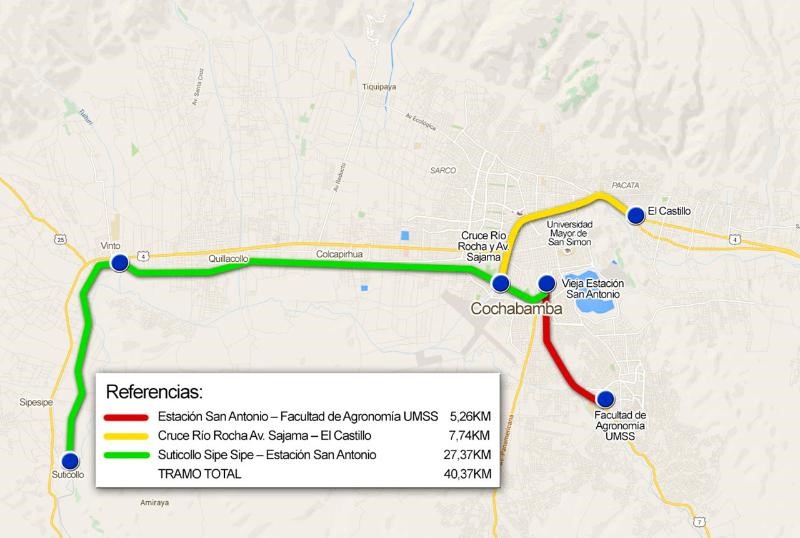
Map of the 42 km light rail nework of Cochabamba with the red, yellow and green line I Source:https://el-vividor.com/proyecto-tren-metropolitano-cochabamba/
Delivery of the first trains
While it initially seemed that Molinari wanted to supply its regional train Integral, which operated on the Bavarian Oberlandbahn, finally in February 2018 twelve vehicles of the light railway “Metelitsa” were ordered from Swiss manufacturer Stadler. These are made in Stadler’s factory in Minsk, Belarus. The vehicles are almost identical to the 23 Stadler Metelitsa which were delivered in 2017 – 2018 to the tram operator Transportnaja Konzessionaja Kompanija (TKK) in St. Petersburg. A shortened version of 24.5 m has been sold under the name “Tango” to Ostrava in Czechia. The 40 vehicles in Ostrava are locally called DPO Nova.
Back to Cochabamba: The first two vehicles are already completed. One of them is on the way to the port of Klaipeda in Lithuania. It is due to start trial runs in Cochabamba on 14 September 2019. The other vehicle is currently undergoing a test programme on the tram network of the Polish city of Olsztyn, which is nearest modern normal-gauge tram network from Stadler’s factory. The dynamic tests will be carried out with the support of the “Baltic Test Centre” and should last a month.

Exterior view of the three-car LRV for Cochabamba I Photo: Stadler 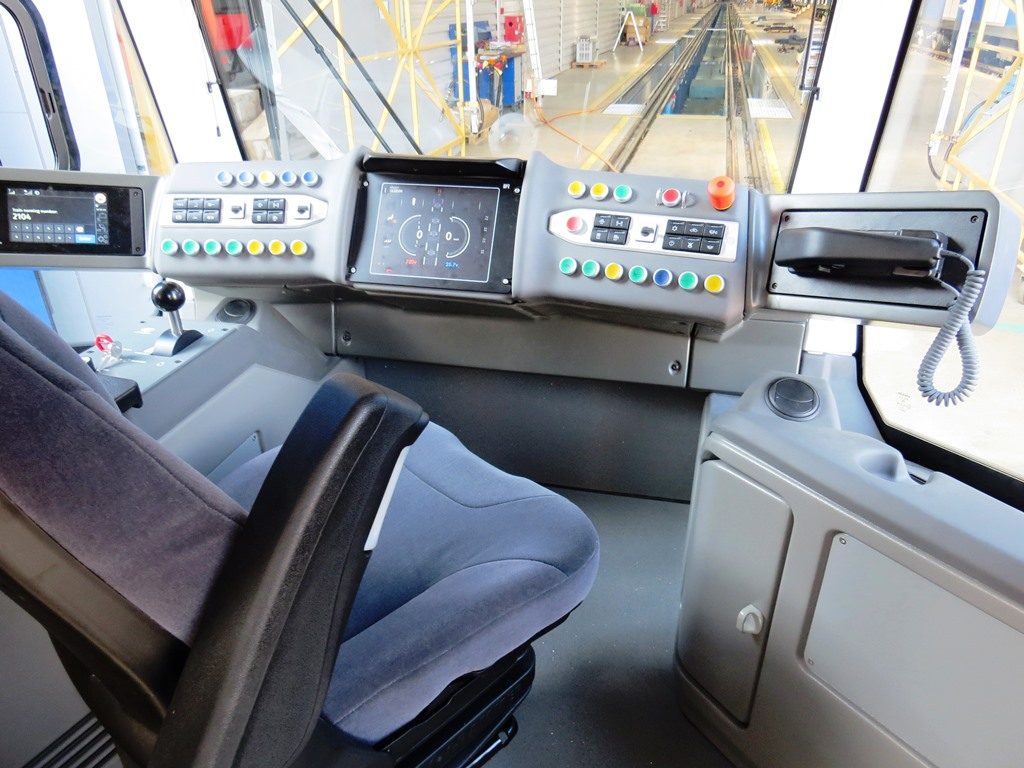
Driver’s cab of the new trains for Cochabamba I Photo: Stadler 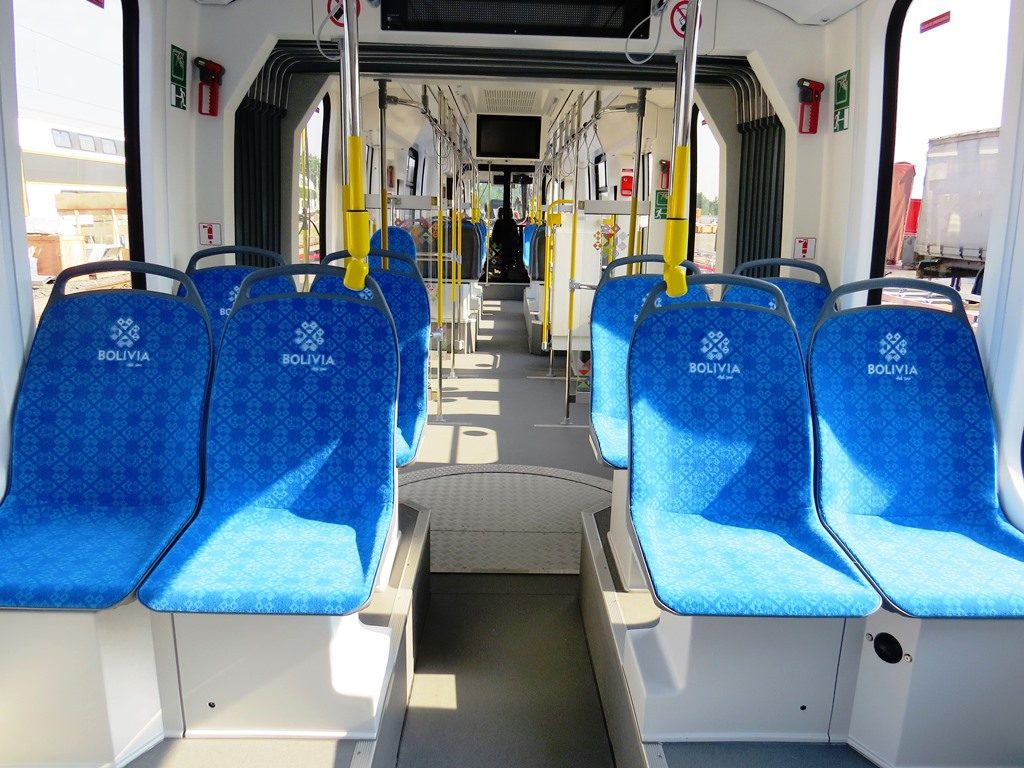
Interior view of the centre car with podests for the turning bogies I Photo: Stadler 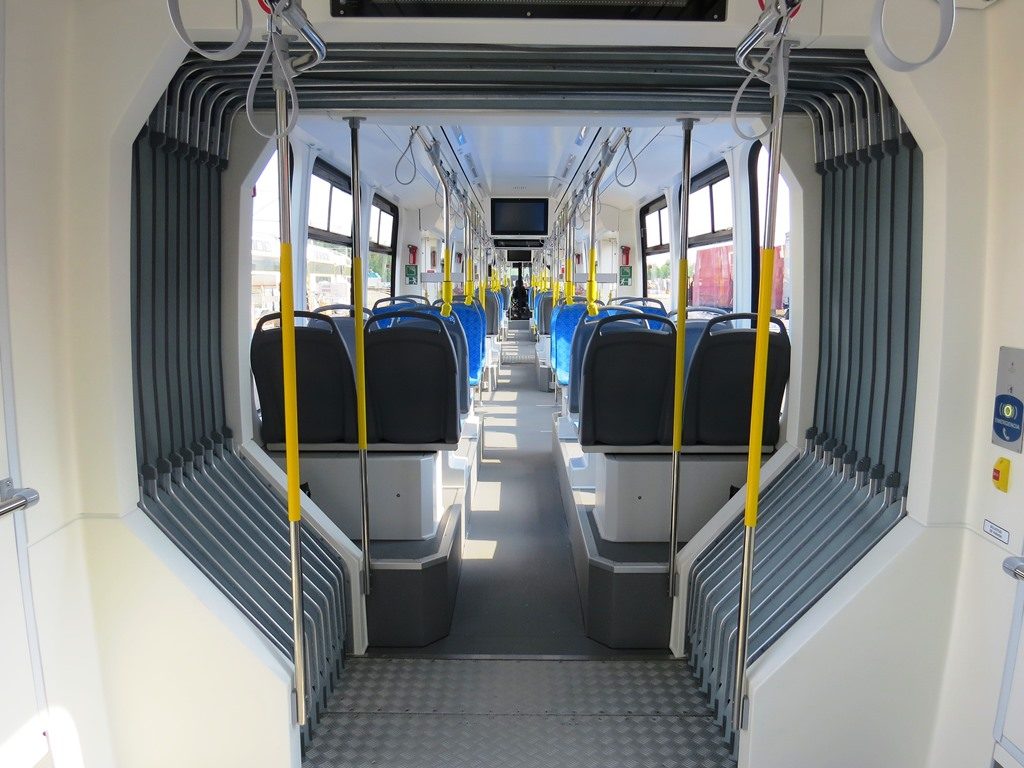
Gangway of the Metelitsa I Photo: Stadler
Project data:
Consortium: Asociación Accidental Tunari, consisting in Joca (Spain) and Molinari (Switzerland)
Tendering: 9/2015
Tender award date: 10/2016
Project start: 8/2017
Start of test runs/ 1st train in Cochabamba: 14/09/2019
Construction time: 32 months
Duration of maintenance contract: 36 months
Project cost: 450 million US$ (ca. 405 million EUR), distributed over three years
Infrastructure: 42 km, 1435 mm gauge, 43 stations, vmax 60 km/h
Red line: 5.5 km
Green line: 27 km
Yellow line: 10 km
Vehicles: 12 Stadler Metelitsa, Capacity for 221 passengers (4 passengers per m2)
Transport capacity: 70 000 – 140 000 passengers per day
Vehicles:
Manufacturer: Stadler Minsk
Type: 3-car bidirectional low-floor LRV, Bo’2’2’Bo’
Number of seats: 66
Passenger capacity: 221 (4 PAX/m2), 376 (8 PAX/m2)
Doors: 5 x 1300 mm per side
Length / width: 33 760 / 2500 mm
Tara / gross/ max. axle-load: 46 500 / 72 820 kg / 10 000 kg
Power: 4 x 105 kW = 420 kW
25.07.2019
